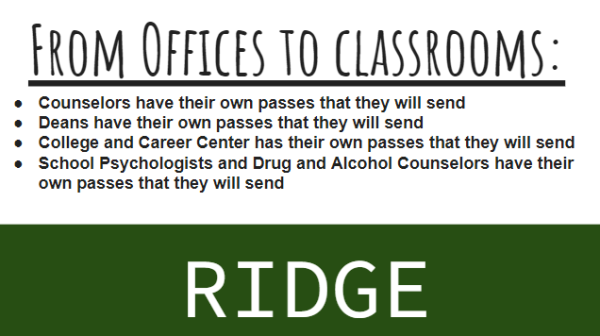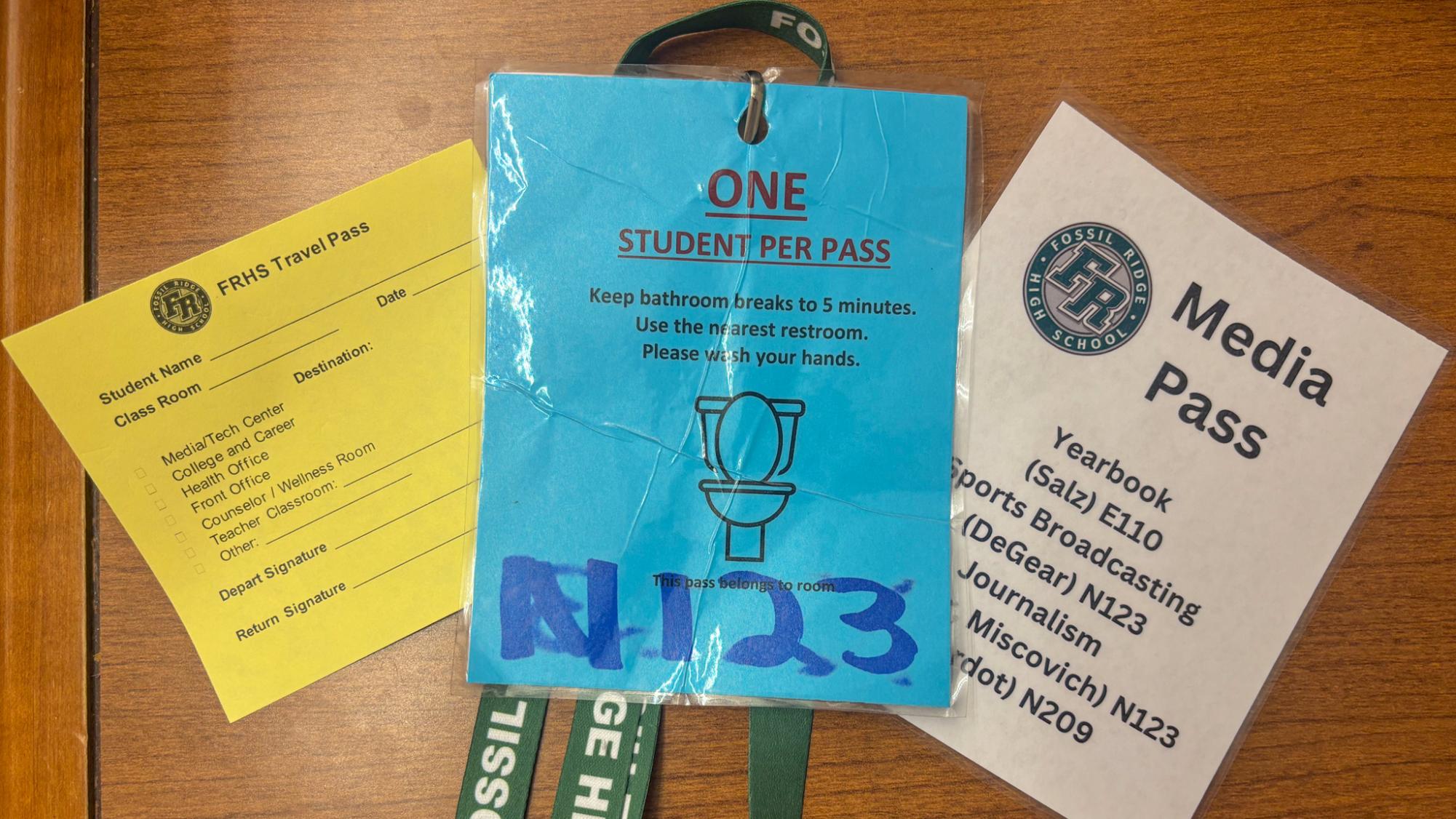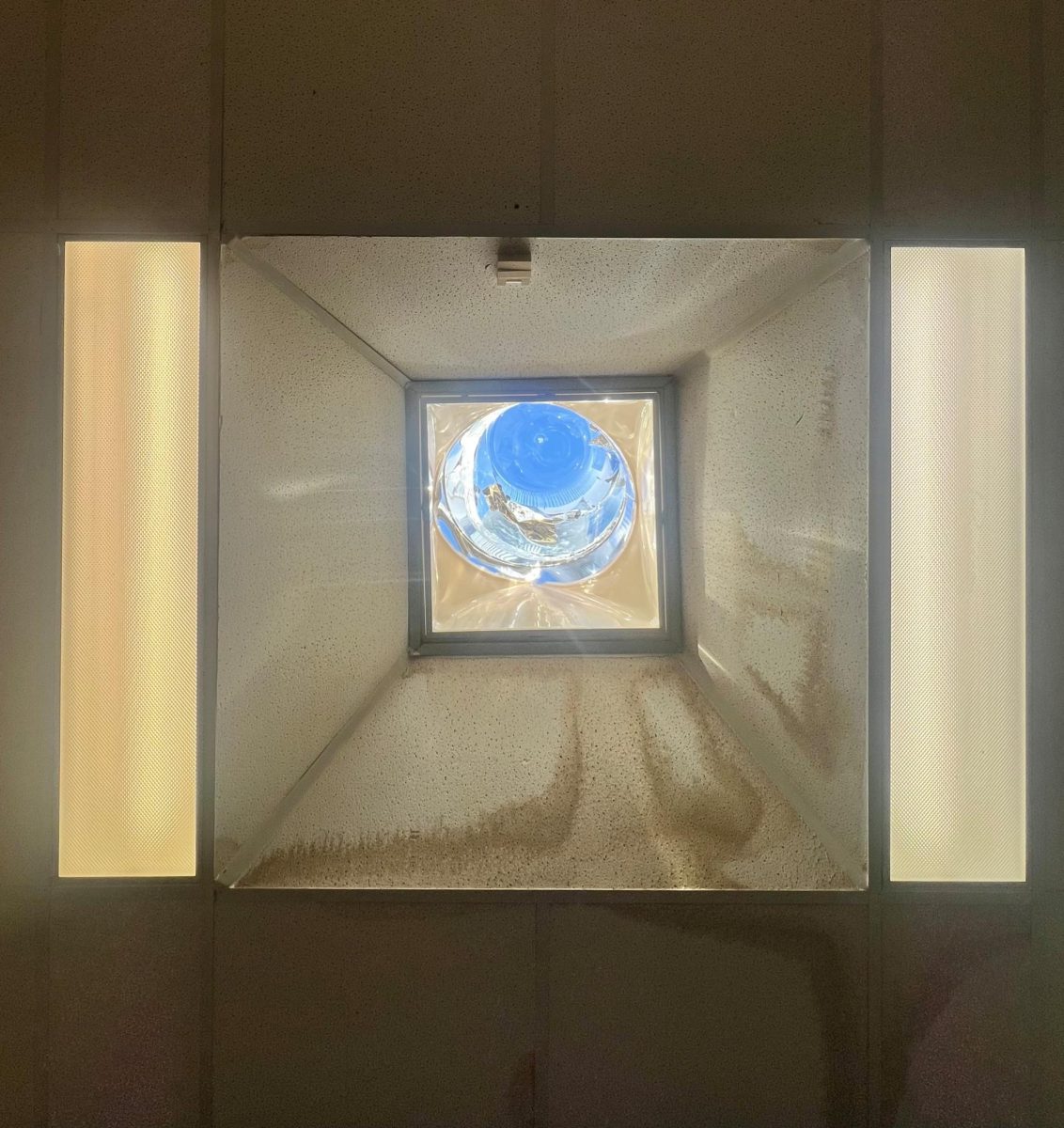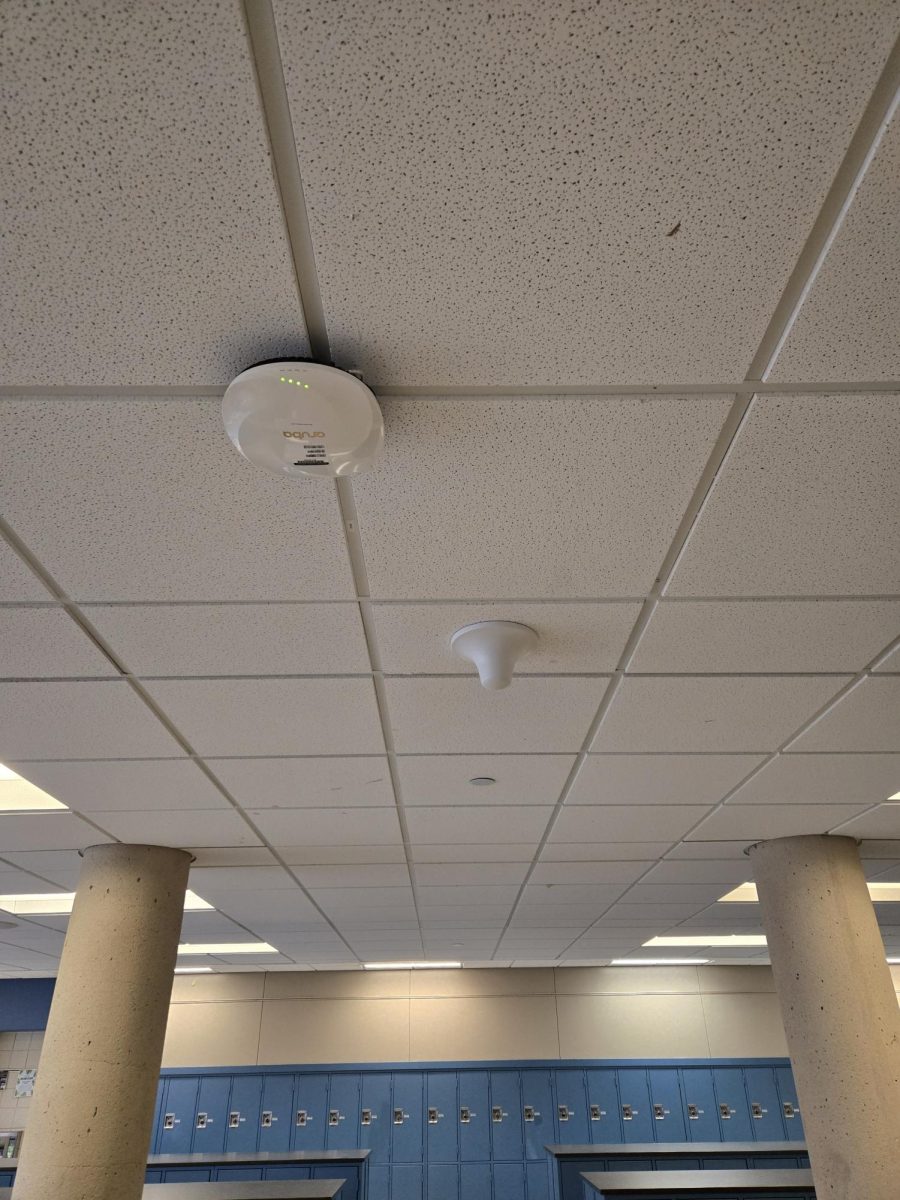Students not in class, not learning, and disrupting others. This is the issue that has plagued Fossil Ridge High School with increasing intensity over the years. Or more specifically, plagued the hallways.
Dean Melissa Stapleton and the rest of Fossil’s administration knew they needed to rework the lax hall pass system when they continuously experienced this issue firsthand.
“We would see kids all the time just wandering around the building, and some kids that consistently never went to class, they just did laps in the hall or hung out in the Commons with several of their friends,” Stapleton says. “It’s a safety thing, too. We had a couple of situations last year where students weren’t accounted for, weren’t in class like they were supposed to be, and walking around, engaging in sort of threatening behavior. And surely that disrupted the learning.”
With this new system, students need a pass for any location they need to go to during class time, including different passes for the bathroom, counselor appointments, or somewhere else. With this, Stapleton hoped to improve student engagement.
“The overall goal is that students are in the classroom where the learning is happening… For [students] to learn and get prepared for the next thing in life, right? And that can’t happen unless they’re in the classroom.”
Previously, even when students were in class, it was easy for them to not take class time seriously.
“We expect our teachers to provide this quality instruction. Well, how can they do that when people are rolling in 15 minutes late? Or they show up, but then they leave and they’re gone for 20 minutes?” Stapleton explains. “So this, hopefully, will make it less disruptive for everybody that’s in the classroom trying to learn and for the teacher who’s trying to teach.”
With a lot of other schools in the Poudre School District implementing no cell phone policies to encourage more connection in the classroom, Stapleton and the other administrators of Fossil decided to start smaller.
“There are lots of things that we wished were different, or improvements we would like to make… [but] we weren’t quite ready to [ban phones], so we wanted to start here instead and see if we could move the needle a little bit,” Stapleton said. “Having kids in the class, engaging and learning really seems like the most important [thing].”
The team worked hard to ensure this system could be implemented correctly and thoroughly right at the start of the school year.

“There was a lot of labor up front, like [Secretary] Dona Reynolds had to make all of these different types and colors and like, what about when it’s a sports team? What happens when it’s a student who has a specialized learning plan? So there’s gonna be some nuance.”
With all these intricacies, Stapleton highlighted the due diligence of Principal Mark Barry to ensure the hall pass system’s success.
“Mr. Barry put a lot of extra time, extra work, extra effort into really spelling out the process and determining what different passes we needed. He talked with teachers, he talked with special service providers, and so he probably invested the most labor in the whole process.”
Already Stapleton is seeing an improvement, pointing to the near empty halls on the security feed in her office.
“You can see the Commons right there, and there are maybe three students. There’s not this parade of people just walking around the building… It just goes to show that we do value the academic piece. As a community, we value the learning that’s supposed to be happening.”









